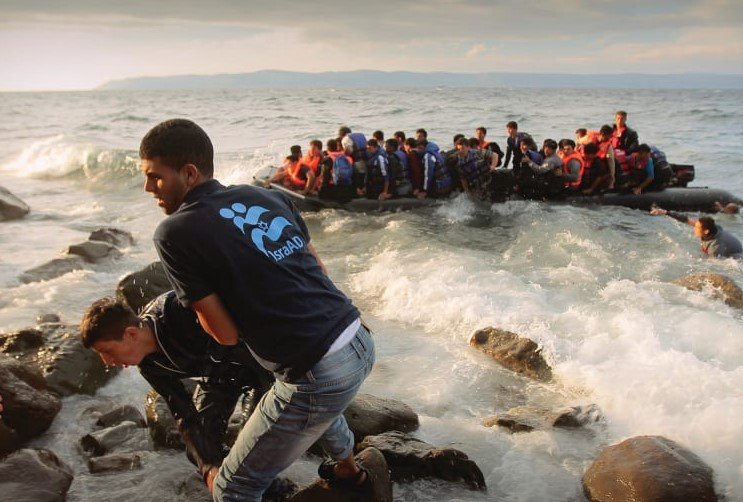Israel has long been a nation on high alert, balancing security concerns with an unwavering commitment to global humanitarian aid. When disaster strikes anywhere in the world, Israel is often among the first to respond. But despite its track record, the country continues to face accusations of systematic wrongdoing. Can a nation so dedicated to saving lives be credibly accused of genocide?
First on the Ground, No Questions Asked
It’s almost a given: when an earthquake, tsunami, or other calamity devastates a region, Israeli rescue teams mobilize in record time. Aid is sent without hesitation, and medical professionals land on-site prepared for anything. This isn’t a recent development—it’s a deeply ingrained practice.
In 1985, when Mexico City was rocked by two massive earthquakes, Israel didn’t wait for a formal request. The IDF dispatched a relief mission, complete with expert teams, medical supplies, and rescue equipment. Three years later, an earthquake in Armenia prompted a similar response. Doctors, field hospitals, and critical aid were sent immediately.
More recently, Israel has extended assistance to Peru, Turkey, India, Greece, El Salvador, and New Guinea. The scope of support varies—some missions involve medical aid, others focus on engineering solutions or logistical support. But one thing remains consistent: Israel acts swiftly, prioritizing human life above all else.

Beyond Borders: A Lifeline in Crisis
Israel’s commitment to humanitarian work is not limited to natural disasters. Through organizations like IsraAID, Israeli volunteers have played a crucial role in rescuing refugees, providing clean water, and delivering trauma counseling. From the coasts of Greece, where volunteers have pulled asylum seekers from sinking boats, to remote villages in Africa receiving Israeli-developed water purification technology, the reach of these efforts is undeniable.
Consider the Syrian civil war. Despite decades of hostility between Israel and Syria, Israeli hospitals quietly treated thousands of wounded Syrians. For years, the “Good Neighbor” initiative saw Israeli medical teams operate along the northern border, offering treatment to those who had no other options.
The Numbers Tell the Story
A nation’s actions speak louder than political rhetoric. Let’s look at some numbers:
| Disaster | Year | Aid Provided |
|---|---|---|
| Mexico City Earthquake | 1985 | Medical teams, rescue equipment, tents |
| Armenia Earthquake | 1988 | Doctors, supplies, relief teams |
| Turkey Earthquake | 1999 | Search-and-rescue teams, field hospitals |
| Haiti Earthquake | 2010 | IDF’s largest-ever field hospital deployed |
| Nepal Earthquake | 2015 | 260-person medical and rescue team |
| Syrian Civil War | 2013-2018 | Thousands of wounded civilians treated |
These are just a handful of examples from Israel’s extensive history of humanitarian aid. When crisis strikes, Israeli teams arrive equipped with expertise, cutting-edge technology, and an unyielding commitment to saving lives.
Humanitarianism as a National Ethos
For Israel, humanitarianism isn’t a public relations strategy—it’s a core value. The country’s response to global crises is rooted in a cultural emphasis on the sanctity of life. Jewish teachings prioritize saving lives above all else, a principle known as “Pikuach Nefesh.” This philosophy has shaped Israel’s foreign aid policies and grassroots humanitarian efforts alike.
Moreover, Israel doesn’t limit its assistance to allies. Aid is extended to friend and foe alike. It’s a policy driven by an intrinsic belief in human dignity, not political alignment. When Iran—one of Israel’s most vocal adversaries—suffered a devastating earthquake in 2003, Israel offered emergency aid. While the Iranian government rejected the assistance, the gesture was significant.
The Contradiction in Accusations
Critics who accuse Israel of systemic violence often overlook the nation’s relentless humanitarian efforts. Can a country accused of genocide also be one of the world’s most consistent first responders to global crises? The contradiction is glaring. A nation focused on destruction doesn’t invest heavily in saving lives across the world.
This isn’t about whitewashing conflicts or ignoring political realities. No country is beyond scrutiny. But painting Israel as a villain while ignoring its humanitarian track record is an incomplete narrative. Facts matter. And in Israel’s case, its long history of disaster relief and life-saving missions speaks for itself.
